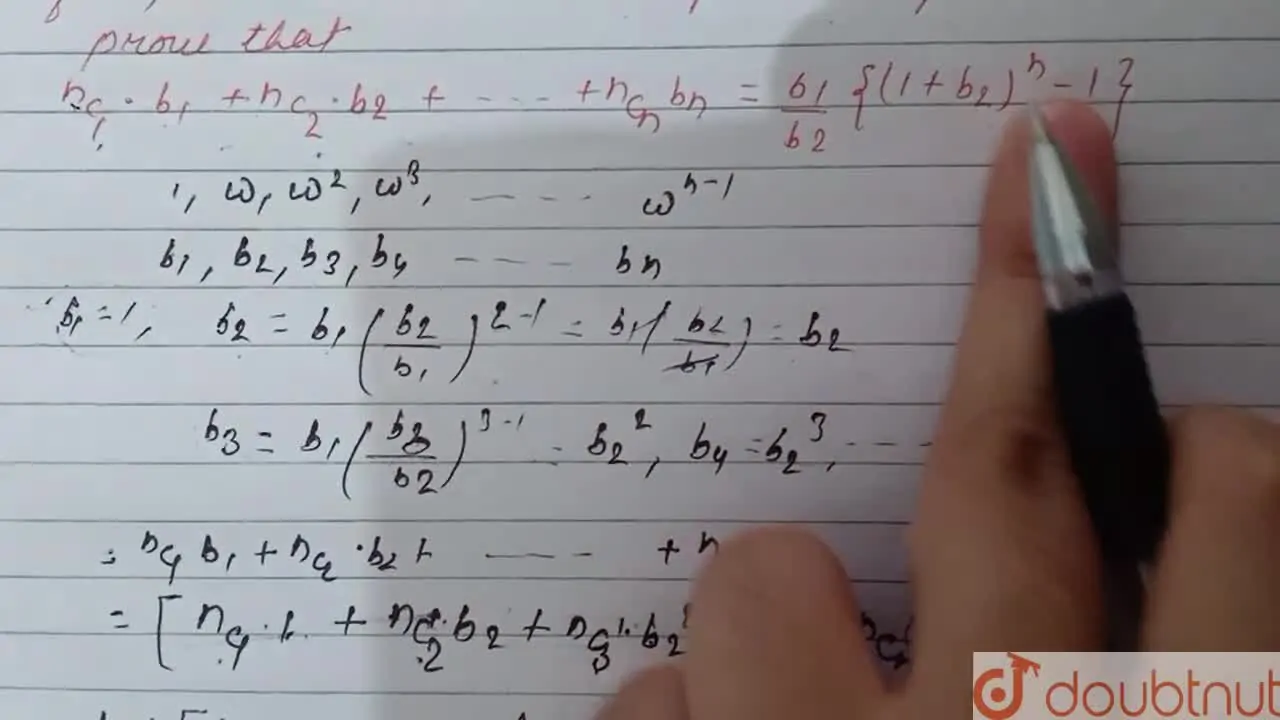If b1,b2bn are the nth roots of unity, then prove that ^nC1.b1+nC2.b2++nCn.bn−b1b2{(1+b2)n−1}.
Step by step video & image solution for If b_1, b_2 b_n are the nth roots of unity, then prove that ^n C_1dotb_1+^n C_2dotb_2++^n C_ndotb_n-b_1/b_2{(1+b_2)^n-1}^dot by Maths experts to help you in doubts & scoring excellent marks in Class 11 exams.
Related Playlists
Similar Questions
If a>bandn is a positive integer, then prove that an−bn>n(ab)(n−1)/2(a−b).
View SolutionIf (1+x)n=n∑r=0Crxr, then prove that C1+2C2+3C3+....+nCn=n2n−1. .
View SolutionIf ω be a nth root of unity, then 1+ω+ω2+…..+ωn−1 is (a)0(B) 1 (C) -1 (D) 2
View SolutionIf 3tanAtanB=1, prove that 2cos(A+B)=cos(A−B).
View SolutionABC is a right-angled triangle in which ∠B=900 and BC=a. If n points L1,L2,,LnonAB is divided in n+1 equal parts and L1M1,L2M2,,LnMn are line segments parallel to BCandM1,M2,,Mn are on AC, then the sum of the lengths of L1M1,L2M2,,LnMn is a(n+1)2 b. a(n−1)2 c. an2 d. none of these
View SolutionIf n. sin(A+2B)=sinA, then prove that: tan(A+B)=1+n1−n.tanB
View SolutionIf α1,α2,……..,αn are the n,nth roots of unity, αr=ei2(r−1)πn,r=1,2,…n then nC1α1+nC2α2+…..+nCnαn is equal to :
View SolutionProve that nC2n0Cn−nC2n−11Cn+nC2×2n−2Cn++(−1)n^nCnnCn=1.
View SolutionIf f(x)=(a1x+b1)2+(a2x+b2)2+...+(anx+bn)2 , then prove that (a1b1+a2b2+...+anbn)2≤(a21+a22+...+a2n)(b21+b22+..+b2n).
View SolutionIf 1,α1,α2,…αn−1 be nth roots of unity then (1+α1)(1+α2)……....(1+αn−1)= (A) 0 or 1 according as n is even or odd (B) 0 or 1 according as n is odd or even (C) n (D) −n
View Solution


